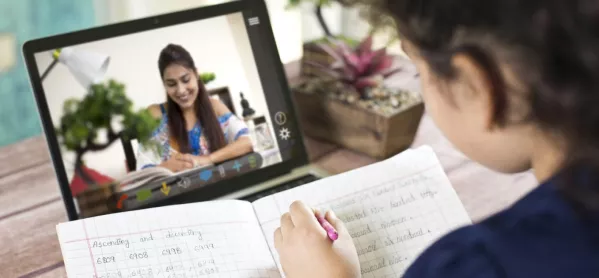Cash-strapped private schools are looking at selling remote-learning courses overseas to boost their income as they try to recover pandemic-related costs, Tes can reveal.
David Woodgate, chief executive at the Independent Schools’ Bursars’ Association, said private schools were looking to “sweat their assets” to boost income and protect bursaries.
GCSEs: Private schools cut ‘minority’ subjects
Related: Private school scholarships ‘do little’ for inclusion
Profile: ‘Prep schools aren’t Hogwarts - we innovate’
“I think schools are looking at how they can better sweat assets, how they can build non-fee income, and, of course, the more non-fee income you get, the more money you’ve got, potentially, for putting into bursaries,” he said.
“Facilities is the absolute obvious one. Day schools, I think, have not done as much as they could because they don’t have accommodation for language schools in the summer holidays.
“I know one school talking to their local Travelodge to take so many rooms so they can go into the language school market, and that school has said to me very explicitly that they want to develop this income stream to help with bursary funding.”
Covid: Private schools ‘look at selling remote-learning lessons overseas’
“Some schools are looking at monetising their remote learning,” he added.
“Our schools learned a huge amount in a very short space of time about the right way to deliver home-learning plans to support pupils with wellbeing so they’re not just sat in front of a screen, and some schools are saying, ‘Well, look, this could potentially give us a global market in countries where there’s emerging middle classes who can’t necessarily afford to come to the UK and board, but they might be able to afford some form of distant remote learning in English so long as they’ve got the bandwidth’ - there’s potential to deliver education far more widely.”
Mr Woodgate said in the case of a “deep recession” caused by the pandemic, schools would need to look at how they “cut their cloth”.
But he added that private schools would not reduce their bursary provision, and in many cases had increased support for families struggling during the pandemic.
“Obviously, schools have faced financial pressures over the last 18 months like any other business,” he said.
“The vast majority of schools I have spoken to have said, ‘No, we are maintaining bursary levels.’
“In fact, quite a lot of schools have been looking at specific hardship funds to help parents who have perhaps been made redundant or furloughed during the pandemic, so they’re actually going the extra mile to try and help out where there is financial hardship.”




